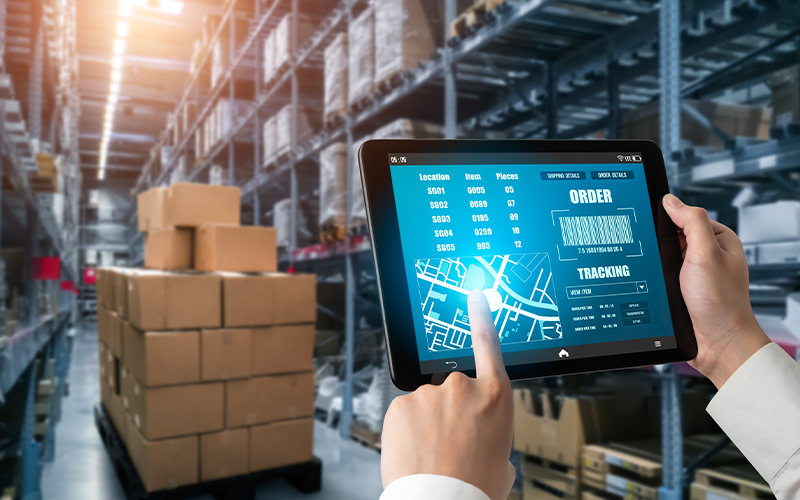Supply Chain
Leveraging machine learning for supply chain efficiency
Logistics and supply chains have always been prone to disruptions, but the COVID-19 pandemic has highlighted their vulnerability. It stretched and tested the limits of commercial, operational, financial, and organisational resilience in supply chains. As a result, 67% of CEOs want to increase their investment in supply chain innovations that lower disruptions and increase efficiency. In this blog, we will understand the key challenges and how leveraging machine learning (ML) in supply chains provides the necessary solutions.
Key challenges in logistics and supply chain management
The supply chain industry is fierce, and businesses are constantly vying to enhance profit margins, deliver better customer experience, and reduce costs. However, only 1 in 10 businesses stay ahead of the following challenges.
- Demand and supply planning: Unexpected variations in demand lead to sporadic order placement from suppliers. This results in either over- or understocking of warehouses. Demand planning is not predictive and prone to frequent disruptions.
- Reactive management: Businesses often operate in a fire-fighting mode where they constantly cope with disruptive events or special occasions such as the festive season when the demand is high and supply is low. There are no systems to predict all possible scenarios and take decisions proactively.
- Supply network planning: Often, businesses depend on a single supplier until they face major disruptions due to late deliveries or order fulfilment failures. There are no metrics to select suppliers other than the cost of goods. The supplier network could be in locations from where transportation time is long.
- Quality control: Lack of standard processes and quality control metrics while selecting suppliers leads to dissatisfied customers and lost reputation and revenue.
- Information management: Supply chain and logistics businesses lack deep data insights, which results in speculation-based decision-making. They lack key metrics, systems, reports, and dashboards for end-to-end supply chain visibility. This causes revenue leakage, inefficient use of funds, and a range of other problems.
- Technical downtime and costs: If businesses are using systems, they could face technical downtime. The lack of a backup and failover strategy can cause major disruptions in the supply chain. This also increases costs and delays deliveries.
Five ways ML can transform supply chains
If you resonate with one or more of the challenges mentioned above, here are the five ways in which ML can transform supply chains.
- Inventory and warehouse management: Storing and managing inventory is expensive. ML can resolve the problem of over- or understocking by sourcing data from seasonal trends, marketplace environment, promotions, sales, and historic data analysis. To do this, ML uses data augmentation, incremental learning, and reinforcement learning methods. ML helps you predict the demand, fill stores in advance, and save space and costs when the demand is low. ML lets you automate work, predict possible solutions, and reduce paperwork in warehouses.
- Logistics: ML gives you full visibility of where each package is in the entire logistics cycle. This helps you track the location and know the conditions under which the goods are in transit. ML also helps in the real-time optimisation of transportation routes based on traffic, road conditions, and weather. The system automatically selects the best route for faster delivery and fuel efficiency.
- Production planning: You can identify quality issues in production during early stages using ML. Perform predictive maintenance of equipment based on real-time data. This leads to better asset maintenance and lower costs. ML also reduces the number of no-fault-found (NFF) cases. By having ML technology in production, businesses can ultimately make their supply chains perform better.
- Security and fraud prevention: ML algorithms can analyse huge data sets and detect possible frauds in the system, such as misuse of credentials, as well as automate anti-fraud measures and speed up fraud investigations.
- Relationship management: Chatbots based on ML technology understand specific keywords and phrases and trigger an appropriate reply. You can use it for supplier relationship management and procurement management. Your staff can focus on other value-added tasks instead of answering similar questions repeatedly.
For organisations on the digital transformation journey, agility is key in responding to a rapidly changing technology and business landscape. Now more than ever, it is crucial to deliver and exceed organisational expectations with a robust digital mindset backed by innovation. Enabling businesses to sense, learn, respond, and evolve like living organisms will be imperative for business excellence. A comprehensive yet modular suite of services is doing precisely that. Equipping organisations with intuitive decision-making automatically at scale, actionable insights based on real-time solutions, anytime/anywhere experience, and in-depth data visibility across functions leading to hyper-productivity, Live Enterprise is building connected organisations that are innovating collaboratively for the future.
How can Infosys BPM help?
Infosys BPM delivers solutions to help you achieve targets in sales, costs, inventory, and customer satisfaction while keeping your supply chains flexible. Some of the solutions are:
- Supply chain diagnostics
- SC shared services advisory
- SC control tower
- Forecasting as a service
- Inventory optimisation
Read more about building agile supply chain optimisation with Infosys BPM.






